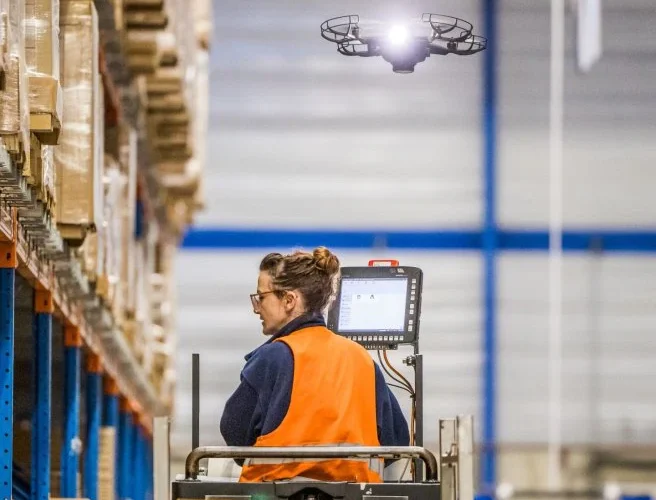Building a motorway is one of the toughest jobs in construction because you have to work all the time and often in difficult weather conditions. In the future, however, something might change because there are those who have found a solution to remedy the worst-case scenarios, relying on drones, robots, and artificial intelligence. That means precision, efficiency, and safety, but it is also a nightmare when thinking about employment, and it is one of the many sectors in which technological evolution is eroding jobs previously held by people.
In any case, what could happen tomorrow in Europe has already happened in China, along the Expressway connecting Beijing with Hong Kong and Macau. Here, 157.5 km have been constructed with the world’s first human-free paving system. This feat signals the progress of automation and the potential of AI and autonomous machines in transforming road construction and thus revolutionising the form and substance of the road construction site, where human activities would be reduced to the management and monitoring of the devices used to build the road surface.
The importance of road systems in China
What made this first possible was the investment of the Chinese government, which considers the increase of motorways to improve connections between the country’s many large cities a priority. It should come as no surprise that China devotes more financial resources to road construction than to the purchase and development of weapons precisely because the growth in per capita income allows more families to travel to visit the beauty within its borders (and airports are packed, as I can confirm having been impressed by the amount of people present in the early hours of the morning in Beijing and Shenzhen airports). This is why more than 130,000 km of new suburban roads have been built in China in the last 20 years.
On the technical side, the system devised in Beijing was developed thanks to the equipment provided by Sany, one of China’s largest manufacturers of heavy machinery, which supplied a 20-metre wide, self-guided automatic paver capable of laying a 19.25-metre ribbon of asphalt in one go. This unprecedented capability not only speeds up the construction process but also improves the integrity of the road surface by avoiding the joints created by joining different previously laid asphalt strips, which can be felt when driving over them with tyres.



In addition to the paving machine, three-wheeled rollers of 30 tonnes each and six rollers of 13 tonnes each were used. These rollers acted on the asphalt according to the path established by the AI algorithms and the Beidou satellite positioning system, ensuring accuracy with a margin of error of around one centimetre. A low-latency communication network enabled the direction to be indicated in real-time.
The advantages of the world’s first man-free flooring system
There is plenty of other technology in the Chinese vision, as a group of drones equipped with optical lenses and high-definition sensors are monitoring the road sections that need attention in order to determine whether machines are needed. Small and capable of inspecting the road surface with minute attention, the drones increase the safety level of this automated construction project, along with electronic fences, a real-time obstacle detection system and emergency functions integrated into the tools. One example is digital gates that, once they detect an obstacle (human, animal, object) in their path, turn off the machines when internal radar detects them less than a metre away.
The advantages of an automated road-building system are obvious, including cost reduction and eliminating or near-zeroing work-related accidents, leading to greater safety compared to traditional construction processes. At the same time, however, the thought that in five to ten years or more, construction sites will disappear (not only road construction sites because similar tools will be used for the construction of buildings, bridges and other infrastructures) must give pause for thought in order to find a solution. If the side effect of technology that improves the world is the progressive loss of man’s weight and occupation, a scenario that is not so far off, to be found unprepared, would be a mortal sin.



